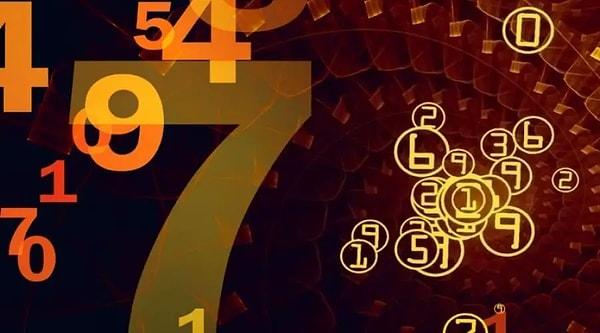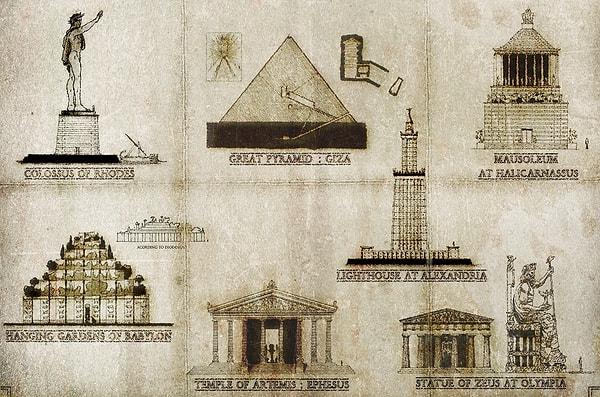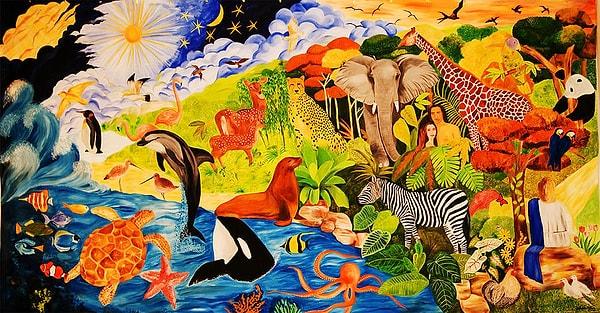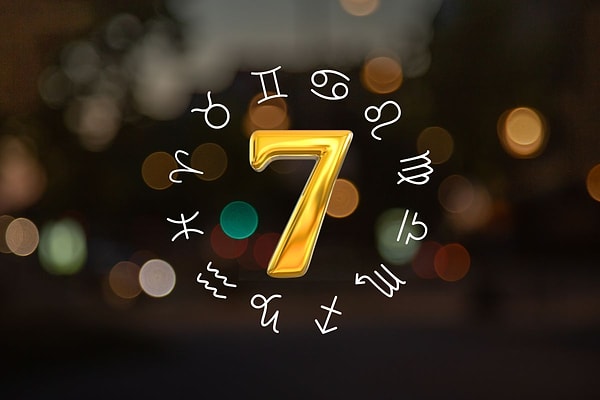What Does The Number 7 Mean? Unlocking The Mystery and Significance
In the intricate tapestry of human history and culture, certain numbers hold a mystique that transcends mere mathematical value. The number 7, with its enigmatic aura, stands as a symbol that has woven itself into the fabric of various belief systems, mythologies, and traditions across the globe. From ancient civilizations to modern religions, the significance of the number 7 is pervasive and profound. In this exploration, we embark on a journey to unravel the mysteries behind the number 7, delving into its cultural, spiritual, and mathematical significance to understand why it holds a special place in the human psyche.
The Power of Prime: Mathematical Significance of 7

Before diving into the symbolic and cultural realms, let's first explore the mathematical foundation of the number 7. As a prime number, 7 holds a unique position in the realm of mathematics. Prime numbers are integers greater than 1 that cannot be formed by multiplying two smaller natural numbers. The simplicity and indivisibility of prime numbers impart them a special status, and 7, as the fourth prime number, possesses an inherent mathematical elegance.
In various mathematical contexts, the number 7 emerges organically. For instance, in geometry, there are seven types of frieze patterns, and in music, the diatonic scale has seven notes. The mathematical significance of 7 extends beyond the confines of pure abstraction, subtly influencing our understanding of patterns and structures in the world around us.
Seven Wonders of the Ancient World: Architectural Marvels and Cultural Icons

The fascination with the number 7 is evident in the list of the Seven Wonders of the Ancient World. Compiled by various ancient writers, including Philo of Byzantium and Antipater of Sidon, this catalog featured seven remarkable structures that were considered architectural marvels of their time. From the Great Pyramid of Giza to the Hanging Gardens of Babylon, the inclusion of precisely seven wonders added a layer of symbolic significance to these extraordinary creations.
The selection of seven wonders was not merely an arbitrary choice but reflected a cultural affinity for the number 7. This enumeration served as a testament to human ingenuity and the desire to organize and categorize the wonders of the world into a harmonious numerical framework.
Seven Days of Creation: Biblical and Religious Symbolism

In religious traditions, the number 7 holds profound symbolism, often associated with divine perfection and completion. In the Judeo-Christian tradition, the Book of Genesis describes the creation of the world in seven days. Each day represents a distinct phase of creation, culminating in the Sabbath, a day of rest and completion. The sacredness of the number 7 is further emphasized throughout the Bible, where it appears repeatedly, signifying divine intervention, completion, and fulfillment.
Beyond Christianity, the number 7 carries significance in various world religions. In Hinduism, there are seven chakras, energy centers that align along the spine, representing different aspects of the self. In Islam, there are seven heavens, and in Buddhism, the seventh step of the Buddha's enlightenment is a crucial stage on the path to Nirvana. This ubiquity of the number 7 across diverse religious traditions underscores its transcendent and universal appeal.
Lucky Number 7: Cultural Beliefs and Superstitions

Beyond the realms of religion and mathematics, the number 7 has earned a reputation as a symbol of luck and good fortune in various cultures. This belief is deeply embedded in folklore and superstitions, with the notion of the 'lucky number 7' prevailing in different societies.
In Western cultures, the association of 7 with luck is evident in various cultural expressions. For example, there are seven colors in a rainbow, seven wonders of the ancient world, and seven deadly sins. In many Western societies, the belief in lucky number 7 is so ingrained that it influences decisions ranging from choosing lottery numbers to scheduling significant events.
In Asian cultures, particularly in China and Japan, the number 7 is also considered lucky. The pronunciation of the number 7 in Mandarin sounds similar to the word for 'togetherness' or 'union,' adding a layer of positive connotation. This cultural affinity for 7 is reflected in the significance of the seventh day of the seventh month in the Chinese and Japanese lunar calendars, celebrated as Qixi or Tanabata, respectively—a festival associated with the reunion of lovers.
Seven in Nature: Patterns and Synchronicities

The influence of the number 7 extends beyond human-made constructs into the realm of nature, where patterns and synchronicities involving the number 7 abound. In the celestial realm, there are seven classical planets visible to the naked eye—Sun, Moon, Mars, Mercury, Jupiter, Venus, and Saturn. The lunar cycle, with its four distinct phases lasting approximately seven days each, further aligns with the pervasive influence of the number 7.
In biology, there are intriguing manifestations of the number 7. For instance, there are seven vertebrae in the neck of a giraffe, and many mammals, including humans, exhibit a recurring seven-day biological rhythm known as the circaseptan rhythm. This natural occurrence of the number 7 in the anatomy and behaviors of living organisms adds to the mystique surrounding its significance.
The Challenge of 7: The Seven-Year Itch and Other Cultural References

Beyond its positive connotations, the number 7 has also found its way into cultural references that convey challenges and tests. The 'seven-year itch' is a popular idiom that refers to a point in a relationship where dissatisfaction or restlessness may arise, often around the seventh year of marriage. This concept has been explored in literature, film, and popular culture, reflecting a societal acknowledgment of the challenges that can emerge in the course of time.
Moreover, in numerology, the number 7 is often associated with introspection, spiritual awakening, and the pursuit of knowledge. Individuals with a life path number of 7 are considered seekers of truth and wisdom, drawn to the deeper mysteries of life. This association with introspection and intellectual pursuits adds a layer of complexity to the symbolism of the number 7.
The Enduring Allure of Seven

In conclusion, the number 7 stands as a captivating symbol that weaves itself through the tapestry of human experience, transcending cultural, religious, and mathematical boundaries. Its pervasive presence in ancient wonders, religious texts, cultural beliefs, and even the natural world underscores its enduring allure. Whether seen as a symbol of divine completion, a marker of good fortune, or a challenge to be overcome, the number 7 continues to captivate the human imagination, inviting us to explore its mysteries and unlock the secrets it holds within the realms of both logic and mysticism.
Keşfet ile ziyaret ettiğin tüm kategorileri tek akışta gör!


Send Comment